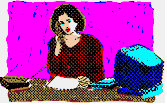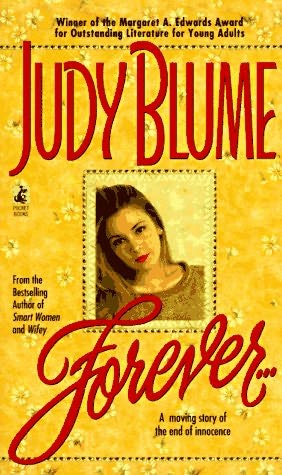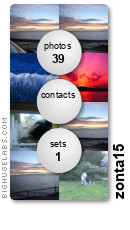I got my name in lights with notcelebrity.co.uk
What is in the future...

Saturday, December 1, 2007
Monday, November 12, 2007
#23 Final thoughts - it is just a beginning


What I loved most about the program was tying it up with the concept of self-learning, which is a necessary ingredient of a life long learning commitment. Each of the participants could go through the program according to their own pace and
 level of interest.
level of interest. I would be delighted to share my newly acquired skills with our patrons. It will be easier for me to further develop these skills and keep on learning.

Sunday, November 11, 2007
Saturday, November 10, 2007
#22 Audiobooks: The Big Wave of the Future?


 books. What an excellent choice of classics it provides. It feels good seeing so many old familiar titles:
books. What an excellent choice of classics it provides. It feels good seeing so many old familiar titles:
Would audiobooks replace the printed books? Here is a very interesting article on the subject:
http://ezinearticles.com/?Audio-Books---The-Big-Wave-of-the-Future&id=499788#21 Podcasts

Definition
A podcast is rich media, such as audio or video, distributed via RSS.
I found an interesting article on Stephen's Lighthouse blog, "Podcasts and Libraries", which lists many potential uses of podcasts in the libraries:
- Library Tours (can even be downloaded to smart phones)
- Story hours / Story Time (record your kiddy librarians)
- Information Literacy and Research Help (check out the many already in iTunes, etc.)
- Library updates and library news
- Collecting and indexing good free podcasts (found through the podcast search engines)
- Local history (collected from veterans, pioneers, local characters, etc.)
- Teen book/DVD/Game reviews (collected by the circulation desk)
- Music collections
- Audiobook collections (ON iPods and MP3 players)
- Library events (like Science Fair help, Literacy nights, author readings)
- Library debates
- Archiving class lectures
- Library marketing podcasts (how to use RSS, databases, VR, etc.)
- Training
- Public speaking training (partnering with groups)
The Library of Congress has an excellent collection of Poetry and Literature podcasts, featuring many wonderful writers, poets, and Nancy Pearl!
I also came across a few interesting podcasts on ABC network. The ABC Perth Radio was one of the sponsors of the National Treasures from Australia's Great Libraries Exhibition, which run at the WA Museum in August 2007. Two podcasts, "Toilet roll diaries", "The story of Ned Kelly helmet", are the special podcast tour guide of the Exhibition.
The Perth's Radio Afternoon Program records the talks with its many great guests in the Afternoon Podcasts. They are featuring such interesting people like the author Andy Griffiths and writer cum scientist Dr Karl Kruszelnicki. Here is my Podcast Roll:
Friday, November 9, 2007
Tuesday, November 6, 2007
Monday, November 5, 2007
Week 9: Podcasts, video & downloadable audio

#20 YouTube - Part of the Web2.0 Revolution
# 19 Web 2.0 Awards

I am very impressed with the list of awarded Web 2.0 sites - hence the inclusion of this link here. There are so many of them. I looked at a few that are most relevant to my interests and picked my own winners.
Here they are:
Books


I have used Biblio many times but Lulu is totally new to me. It will be of interest to these library patrons who would like to self-publish or even have a go at creating family histories, childrens books, family cookery books, and so forth.
Digital photos

Picnik is an online photo editor packed with many wonderful features: you can crop, resize, rotate your photos and use special effects, touch ups and more. You don't even have to register to use this service but access to more advanced features will cost you $24.95 a year. If you are a serious photo fan, it is worth it!
Travel


Week 8: Online Applications & Tools

Zoho is practical and versatile. The documents can be easily posted to blogs in as many updated versions as one wishes. Fitting Zoho's documents in a blog post is another matter. Depending on the template used, they might not arrive in their original format. I created a few different documents using Zoho: a blank template to write in text and upload a picture, a booklet template and a show template. I struggled to fit a picture into a blog post and the booklet format was automatically altered by Blogger to fit its content into the blog. It looked much better in its original version on Zoho. I am not certain if I can attribute this problem to may ignorance or if this is a true limitation on Zoho's part as far as blog posts are concerned.
Zoho Booklet - Read the Banned Books
Read the Banned Books to READ “[I]t's not just the books under fire now that worry me. It is the books that will never be written. The books that will never be read. And all due to the fear of censorship. As always, young readers will be the real losers.” — |
Saturday, November 3, 2007
A Masterpiece for a Zoho Writer
Pilgrimage to Esguipulas, Juan Sisay
Juan Sisay, Maya artist of Santiago Atitlan, Guatemala, Santiago Atitlan's first and most famous painter, a master painter

definition: masterpiece
"Long before masterpiece became associated with the fine arts doing the Renaissance, it meant the perfect piece of work that an apprentice under the English guild system had to make before he was recognised as a master, After he had served his apprenticeship and was able to m ake a piece worthy of a master, a masterpiece, he became a master himself and was no longer required to work under supervision".
The Encyclopedia of Word and Phrase Origins, Robert Hendrickson
Monday, October 29, 2007
More Wikis

I added my blog to the Australian Favorite Blogs and sent a post to the Learning Wiki . It is easy, after doing all this blogging.
A Free World of Wikis
 I love Wikis. It is wonderful that we can go to websites like these to read, write, change, edit, argue, learn, showcase our knowledge, share our expertise, or simply feel free to try something new and exciting. They are fast and working with them doesn't require a great deal of a technical expertise.
I love Wikis. It is wonderful that we can go to websites like these to read, write, change, edit, argue, learn, showcase our knowledge, share our expertise, or simply feel free to try something new and exciting. They are fast and working with them doesn't require a great deal of a technical expertise.I have been cruising through many Wikis and am impressed by their versatility and scope, and their varied applications in the library setting . Here are some of the ideas I like most:
- Open WorldCat - patrons annotating the catalogue, although this is purely an imaginary thought on my part.
- Library Instruction Wiki - using wiki to find handouts, tutorials, suggestions, instead of "re-inventing the wheel".
- Book Lovers Wiki by Princeton Public Library: combining Readers' Advisory activities with book reviews, open to volunteers, library staff, authors, in short - library community
- Library Outreach Wiki.
- Wiki in the workplace: how wikis can help manage knowledge in library reference services
- Subject guide wikis: with an excellent example of St. Joseph County Public Library's Subject Guide.
- DIY Wiki: you can choose your own wiki using wikimatrix
However, what works for Wiki, can work against it. The open, egalitarian nature of this tool makes it vulnerable, open to manipulation, missinformation, scams, "editorial wars". Wikipedia, the largest Wiki on the Internet, was a few times the subject of malicious satire, or a hoax. Teachers are cautious with recommending Wikipedia as a reliable resource to their students.
Jimmy Wales, the founder of Wikipedia, agrees with them, but adds that if someone finds an error in Wikipedia and advises the administrators it can be corrected immediately. The same cannot be done so quickly with any other encyclopedia. And no other encyclopedia would have such unlimited subject scope, freedom to publish ucensored opinions, and an expertise drawn from a vast, broad, passionate and deep readership.
Tuesday, October 23, 2007
Web 2.0 Revolution, Library 2.0 and Beyond

In one of my previous posts I made a comment that the Internet, with its ever-evolving capacity to host vast, unlimited library resources, is like a modern Alexandria Library, the largest Library of the ancient world. But the comparison stops right at this point. Even if one ignores the differences in library materials: from the manuscript to print, from e-book to 3D book, the nature of library presence, interactions, has changed forever. No longer it is necessary to come to the library to borrow, to read, to socialise. The Library of today is everywhere. It comes to the user's home, office, school, cafe, bookgroup meeting...
The revolution created by the emergence of Web 2.0, the new generation of Internet based services such as social networking sites, wikis, communication tools and folksonomies, changed the nature of information formats and delivery, opening the door to new information infrastructure, the Library 2.0. As Dr Wendy Schultz observes in her article, "Infinite Futures", Library 2.0 is barrier-free and engaging: "collaborate with Amazon; provide digital downloads of books; create a global, and globally accessible catalogue; invite readers to tag and comment. Yet as more information becomes more accessible, people will still need experienced tour guides - tagclouds offer diverse connections, not focused expertise. This will drive the transition to Library 3.0: the 3D service".
Here comes the concept of Virtual Worlds, SecondLife3, the virtual graphic world. "Digital natives", as Schultz calls them, are spending over forty hours a week online, immersed in this world. The virtual collections in the 3D world will follow, and books "may have avatars and personalities". However such a wealth of materials will create a need of service, of tailoring information to needs. Users will want a "virtual reality information coach", librarian avatar. They will rate them, based on customer satisfaction, they could create the librarian "superstar". They will collect librarians rather than books, because the librarian will prepare the material for them.
There also will be Library 4.0, the neo-library experience. The Library for the "dream society which will need libraries as mind gyms; as idea labs, as art salons". It wont replace Libraries 1.0 through 3.0; it will absorb them. It will be a "knowledge" spa: meditation, relaxation, immersion in a luxury of ideas and thoughts.
Returning to reality, to the Library 2.0... What does it means to me? In the first place, I would not know much about it if not given the chance to participate in Learning 2.0. I was always well aware of the importance of the Internet to a small library, but Learning 2.0 is opening up a new world of possibilities in which my library can utilise this tool. In short: it will greatly help to enhance reference services; outreach programs; marketing; cataloguing; user education evolving around new technologies such as podcast tours of the library, public classes using web 2.0; building online connections between the library communities such as community wikis; encouraging user participation in content creating such as user blogs for writing, reading, bookshelves...
Technology is only a commodity and its value should be assessed in the context of meeting the users needs, of finding the new ways to improve services. However, if technology is useful, it cannot be ignored. The libraries are responsible for keeping up with the technological change to be able to select the best for their customers. There is no other choice - making ourselves familiar with technology is the only choice.
As Rick Anderson comments in his article, "Away from the Icebergs":
"No profession can survive if it throws its core principles and values overboard in response to every shift in the zeitgeist. However, it can be equally disastrous when a profession fails to acknowledge and adapt to radical, fundamental change in the marketplace it serves".
Thanks for Learning 2.0!
Monday, October 22, 2007
Search, Discover and Organize the World Live Web with Technorati

#14
Blogging is global. Blogosphere is huge. As of August 2007, Technorati, the leading search engine for searching blogs, indexes over 94 million weblogs. Perhaps it is the sheer enormity of this task that makes Technorati a very complex and clumsy site.
WEEK 6 - Exploring Tagging, Folksonomies and Technorati
 ing: tagging with Del.icio.us
ing: tagging with Del.icio.usLets start with definitions:
- all your bookmarks are in one place
- you can bookmark things for yourself and friends
- you can check out what other people are bookmarking
- you can access your bookmarks from any computers and bookmark from anywhere
- you can use tags to organise and remember your bookmarks
Del.icio.us is well designed, user-friendly and very useful. It is easy to find the specific subject, folksonomies work smoothly with bookmarks, the content of bookmarks is presented in a simple and informative way. It is useful for research, for discoveries, for play. I have a newly acquired interest in futurism, virtual worlds, Second Life libraries and bookmarked a lot of relevant articles. It was interesting to see how popular these subjects are and that many people share my interest. I subscribed to Del.cio.us some time ago but haven't used it much, giving preference too Furl. Furl is similar to Del.cio.us but has one feature which the other lacks - it archives a complete copy of each page that a user bookmarks, making it accessible even if the original content is modified or removed. I find this feature extremely useful and I like the way in which Furl organises and annotates favourites. However, after spending more time with Del.icio.us, thanks to this exercise, I have grown very fond of its tagging system and varied, stimulating content.
There are other social bookmarking sites, worth exploring: Digg, Blue Dot, Stumble Upon. Each of them is slightly different and may have more relevance to a particular user over another. Digg, for example, has an emphasis on technology, and only recently added politics and entertainment to its content.
You can have a look at my Del.icio.us tags and the widgets of Furl's and Digg's favorites.
Friday, October 12, 2007
Searching with Rollyo
I selected the websites most relevant to my reference work but just as well I could choose any other subject area or hobby. It is helpful to have a search engine that can assist me with organising my online research tools.
Tuesday, October 9, 2007
My real Candy Store - Library Thing

If making a "Hairspray" character felt good, the "Library Thing" is "the thing" - my real Candy Store.
There is a plethora of bookgroups on the Mornington Peninsula and often they ask for a good booklist, book reviews, notes on authors. Our booklists are developed and maintained in the old fashioned way. The Library Thing will be most useful to me - it is so much easier to maintain the booklist online and link it to the library website or the bookgroups' blogs. The catalogue is very helpful - it will give a glimpse into book contents. Not to mention recommending the site to bookgroups so they can create their own bookshelves!
The Library Thing, with all its features, is a treasure trove for any bookgroup and most certainly, any librarian interested in all things reading related.
 The Story of San Michele by Axel Munthe
The Story of San Michele by Axel Muntheone of my favorite books from the past
WEEK 5 : Play Week





spiffytext
#10
Image Generator
It is a play week so I am playing. I looked at a few image generators until I came across the Meezmaker and Animation Library. I just love images in motion even if the exercise seems to be pointless. They can be pretty amusing and challenge lies in downloading the image without losing animation. They could make presentations very lively and entertaining indeed!
You can have a look at the image on a sidebar.
On a more serious note, I also liked ComicStripGenerator. This strip is dedicated to the hard working library staff.

Saturday, October 6, 2007
Is the library unfair to non-readers?


"Read responsibly!"
"Is the library unfair to non-readers?"
I admire delicate undertones of these posters. The ideas from comic strips can be very well utilised in library marketing.
Here comes another benefit of mastering digital skills - everything becomes so much more accessible through resource sharing - and what a scope that is and what a generosity. What a multitude of talent and creativity!





























